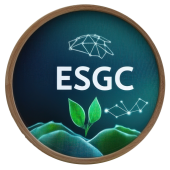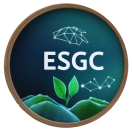
Sustainability management and supply chain engagement is a topic which gains more and more interest in today’s business world. Companies are requesting their suppliers to gain them insights in their supply chain to assess the risk of threats like human rights infractions or ecological scandals. Assessment platforms like CDP or EcoVadis allow comfortable access for those requesters to the collected data and a check of immediate risk.
Besides that, companies are more and more pressured by stakeholders, customers or newly introduced laws to publish non-financial key performance indicators (like for example their Carbon Footprint or compliance infringements). That reporting is then often done in a CSR-report aligned to one of the global standards. The most widespread of those reporting frameworks are the UN Global Compact and GRI.
Effectively, as most newly requested mid-size businesses are not (yet) having the luxury of an own sustainability manager or even the basic infrastructure to collect all needed data effectively, the practice has shown that a lot of unnecessary extra workload is generated. Luckily, once a certain level of qualitative data is gathered, it can be used for several assessments. There are lots of crosslinks between the different providers. For example, EcoVadis acknowledges a filled-out CDP-questionnaire or a GRI-report and rewards them with several points.
Though, this process can easily be slimmed down to a centralized data collection. This is what we understand as Sustainability Intelligence (see fig. 1).

Fig. 1: DFGE’s Sustainability Intelligence approach (own elaboration)
Current challenges within the sustainability area
The field of CSR management and sustainable business is becoming more complex. Above named aspects are main drivers for this development. Being compliant with social, economic and environmental law regulations is the minimum requirement a company should fulfill. Nevertheless, such behavior is a defensive and reactive strategy and doesn’t provide the needed flexibility dealing with relevant (sustainability) risks. Therefore, it is more useful integrating sustainability aspects into the core business and implementing a proactive sustainability strategy.
In the first step, it is important to perform an analysis of the current sustainability state in order to identify the current status of CSR engagement. The next step is to identify the key aspects and impacts of your business in cooperation with key stakeholders. This will guarantee deriving suitable goals that should be ambitious, but also not unachievable. In order to achieve these objectives, measures must be defined that can be implemented within a certain period of time. The communication of this engagement via a suitable channel (e. g. UNGC, GRI) shows transparency and can be used as a verification tool. This in turn provides a basis for the next analysis of the current state.
Sustainability Intelligence supports your sustainability management
The DFGE supports companies at all stages of their CSR engagement and in implementing a sustainability management which is in line with the Sustainability Intelligence approach.
Regardless of your business activity, the calculation of the Corporate Carbon Footprint (CCF) is an appropriate tool for calculating the climatic impact of a company. The determination of the Product Carbon Footprint (PCF) establishes the conjunction to the core business. The additional calculation of the Water Footprint supplements the overall eco balance and provides a consistent representation of the ecological impact of a company. The challenges of such calculations are the holistic calculation of all relevant areas (e. g. Scope 1, 2 and 3) as well as the consideration of all (global) locations of the organization. The DFGE has an experience of more than 20 years in calculating carbon footprints and eco-balances. By means of DFGE’s TopDown approach, the emissions of the baseline scenario (prior to the implementation of the pilot scheme) could be compared to the emissions afterwards. All calculations are executed in accordance with the principles of the Greenhouse Gas Protocol and the DIN 16258 norm (regulating greenhouse gas emissions in transport and logistics).
Based on the Sustainability Intelligence approach, the existing database can be seriously communicated via a GRI or UNGC sustainability report and can be used as part of a CSR rating like CDP or EcoVadis. This approach applies to other ecological aspects and to social issues as well. DFGE helps your organization in developing appropriate measures and KPIs. This will be implemented in the context of a dynamic CSR engagement in order to ensure the continued development of the company in this important area. The Sustainability Intelligence approach helps to exploit the resulting synergy effects here, too.
Summarized, the aim of DFGE’s Sustainability Intelligence approach is to bundle the effort of taking part in the sustainability business area. This way, work has to be done only once and you can focus on the substantial, meaning on your sustainability management and execution of CSR activities.
DFGE at the Sustainability Leaders conference in Berlin
On May, 23rd and 24th, DFGE will participate as an exhibitor sponsor at the Sustainability Leaders conference in Berlin. This will give you the opportunity to discuss with us current trends, opportunities and reporting frameworks within the CSR area as well as about our Sustainability Intelligence approach. If you have any questions before the Sustainability Leaders conference or in general, don’t hesitate to contact us via info@dfge.de or by phone at 08192-99733-20.
About DFGE
Founded in 1999 as a spin-off of the technical University of Munich, the DFGE – Institute for Energy, Ecology and Economy provides consulting services in the field of sustainability. Our offer Sustainability Intelligence featuring calculation management and reporting solutions aims at bundling the effort of taking part in several sustainability/CSR standards and rankings like CDP, UNGC, EcoVadis or GRI. Our services are structured according to our ACCoRD scheme: Analyze, Collect, Compose, Review, and Document, to foster continuous improvement and collect reliable data. Our clients range from international companies (DAX and fortune 500) to SMEs. Our partners are key players in the domain (such as CDP and EcoVadis), and we constantly monitor the current trends and existing norms, to support the organizations with dedicated solutions.
The DFGE disclaims all warranties as to the accuracy or completeness of the given information. All opinions and estimates included in this report constitute DFGE’s judgment as of the date of this report and are subject to change without notice. DFGE shall have no liability for errors, omissions, or inadequacies in the information contained herein or for interpretations thereof.
All trademarks and registered trademarks are the property of their respective owners


I don’t think the title of your article matches the content lol. Just kidding, mainly because I had some doubts after reading the article.
Your article helped me a lot, is there any more related content? Thanks!
Your article helped me a lot, is there any more related content? Thanks! free binance account
Thanks for sharing. I read many of your blog posts, cool, your blog is very good. 最佳Binance推荐代码
Your article helped me a lot, is there any more related content? Thanks!
Thank you for your sharing. I am worried that I lack creative ideas. It is your article that makes me full of hope. Thank you. But, I have a question, can you help me?
I don’t think the title of your article matches the content lol. Just kidding, mainly because I had some doubts after reading the article.
Thank you for your sharing. I am worried that I lack creative ideas. It is your article that makes me full of hope. Thank you. But, I have a question, can you help me?
Thanks for sharing. I read many of your blog posts, cool, your blog is very good.
Thank you for your sharing. I am worried that I lack creative ideas. It is your article that makes me full of hope. Thank you. But, I have a question, can you help me?
Can you be more specific about the content of your article? After reading it, I still have some doubts. Hope you can help me.
Can you be more specific about the content of your article? After reading it, I still have some doubts. Hope you can help me.
Your article helped me a lot, is there any more related content? Thanks!
Thanks for sharing. I read many of your blog posts, cool, your blog is very good.
Thank you for your sharing. I am worried that I lack creative ideas. It is your article that makes me full of hope. Thank you. But, I have a question, can you help me?
Your point of view caught my eye and was very interesting. Thanks. I have a question for you.
Can you be more specific about the content of your article? After reading it, I still have some doubts. Hope you can help me.
Thanks for sharing. I read many of your blog posts, cool, your blog is very good.
Your point of view caught my eye and was very interesting. Thanks. I have a question for you.
Your article helped me a lot, is there any more related content? Thanks!
Thank you for your sharing. I am worried that I lack creative ideas. It is your article that makes me full of hope. Thank you. But, I have a question, can you help me?
I don’t think the title of your article matches the content lol. Just kidding, mainly because I had some doubts after reading the article.
I don’t think the title of your article matches the content lol. Just kidding, mainly because I had some doubts after reading the article.
I have read your article carefully and I agree with you very much. This has provided a great help for my thesis writing, and I will seriously improve it. However, I don’t know much about a certain place. Can you help me?
Thanks for sharing. I read many of your blog posts, cool, your blog is very good.
Your article helped me a lot, is there any more related content? Thanks!
Can you be more specific about the content of your article? After reading it, I still have some doubts. Hope you can help me.
Can you be more specific about the content of your article? After reading it, I still have some doubts. Hope you can help me.
Can you be more specific about the content of your article? After reading it, I still have some doubts. Hope you can help me.
Thank you for your sharing. I am worried that I lack creative ideas. It is your article that makes me full of hope. Thank you. But, I have a question, can you help me? https://www.binance.info/en-ZA/register?ref=JHQQKNKN
Thanks for sharing. I read many of your blog posts, cool, your blog is very good.
Thank you for your sharing. I am worried that I lack creative ideas. It is your article that makes me full of hope. Thank you. But, I have a question, can you help me?
I don’t think the title of your article matches the content lol. Just kidding, mainly because I had some doubts after reading the article.
Can you be more specific about the content of your article? After reading it, I still have some doubts. Hope you can help me.
Your article helped me a lot, is there any more related content? Thanks!
I don’t think the title of your article matches the content lol. Just kidding, mainly because I had some doubts after reading the article. https://accounts.binance.info/register?ref=P9L9FQKY
Can you be more specific about the content of your article? After reading it, I still have some doubts. Hope you can help me.